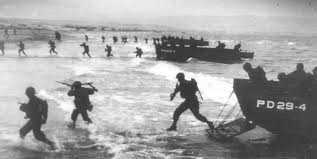What's the Difference Between a Chronicler and a Historian?
Biff Barnes
What’s the difference between a historian and a chronicler or documentarian? Anyone contemplating writing a family history ought to give the question some thought. A person who wants to chronicle events is primarily concerned with creating and documenting a record of everything that happened. It’s not surprising that the daily newspaper I read is called The Chronicle. It sees its responsibility as capturing events great and small which occurred the previous day. Some are of earthshaking import, but most are not. There’s a reason that newspapers often wind up on the bottom of people’s birdcages.
A genealogist’s research is intended to create to create that sort of documented record of his ancestors. It involves gathering facts and demonstrating through documentary evidence the accuracy of those facts.
But, when a genealogist decides to become a family historian by turning his research into a book his role changes. You need to recognize that you are writing for an audience and that you have a responsibility to present your family’s history in the most interesting way possible to that audience.
- Rule One: Realize that just because you have gone to great length to acquire knowledge about a particular detail or event and to document its factual basis it won’t necessarily be interesting or important in the eyes of your audience.
Your readers will probably find it more interesting and significant that your ancestor landed on Utah Beach on D-Day than that he spent eight weeks in training at Ft. Bragg, North Carolina. The two facts don’t deserve equal time in your book just because they both happened. One might not even need to be there at all.

- Rule 2: Recognize that life’s turning points, triumphs and epiphanies aren’t distributed equally over the years of a person’s life. Look for the dramatic and significant events in your ancestor’s life. If there were stretches of years when things just rolled along without anything of interest happening, you don’t have to give those years equal time (or maybe even any time) in your book.
Getting away from straight chronology is a good way to free yourself to focus only on the big events giving the most attention to the most important aspects of your family’s history.
A historian interprets events. She makes choices about what is important among the many facts at her disposal and uses them to show why some events are especially significant. By choosing anecdotes that are interesting and unusual to tell your ancestors’ story you will also make that story engaging for your audience.